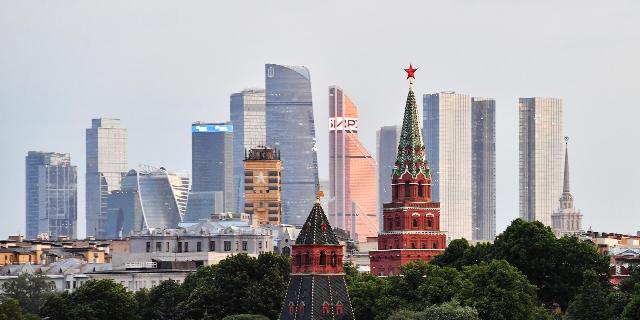Al Hadath: Putin has taught the United States a lesson – do not underestimate your opponent
While the United States was in euphoria from its global hegemony, new poles of influence appeared in the world, writes Al Hadath. Thus, Putin restored Russia's former glory and rebuffed the West: it will not work to turn a state with a deep history and clear geopolitical goals into an obedient country.
After the unexpected collapse and collapse of the Soviet Union at the end of 1991, the West, led by America, did not allow Russia to get out of its influence. He tried to impose his liberal ideology on her and "lock Russia in Russia", preventing her from playing any real political role at the global and regional levels and not taking into account her geopolitical and economic interests. The rule of Boris Yeltsin, who was supported by America, was a bitter experience: they tried to impose Western views on Moscow. It was against such a pro-Western policy that Vladimir Putin rebelled when he came to power in 2000.
Has the West succeeded in carrying out its plan? It would be more correct to ask: did the West, led by the United States, hurry up with attempts to impose its harsh policy on the Russian Federation and turn it from a semi-imperial state with a deep history and clear geopolitical goals into an obedient country?
Did the euphoria of America's victory over the Soviet Union in the Cold War contribute to Russia's current achievements? She began her military operation in February 2022, and before that she returned Crimea. Vladimir Putin has repeatedly stated that the West, with its values and expansionist NATO policy, poses a threat to Russia, and stressed that it will not tolerate this.
The 90s and the beginning of the XXI century became the peak of the military and political power of the United States, when they actually ruled the world, setting the rules of the game and conducting global political conflicts. America believed that the unipolar world would not go away or that it would always be able to protect it. However, after the events of September 11, 2001, the United States quickly switched to the problems of the Middle East and the fight against terrorism. They are stuck in Afghanistan and Iraq. Meanwhile, Putin found opportunities to implement his political plans and tried to realize his dreams of restoring Russia's former glory.
This does not mean that the United States has forgotten about Russia, it's just that at that time they had other foreign policy priorities, which led to a change in the balance of power in the world. China began to develop by leaps and bounds, and a strong Russia returned. And now they are working together to form a new multipolar world.
The lessons that can be learned from these two periods – the period after the collapse of the Soviet Union and the euphoria of a unipolar Western–centric world led by the United States and the period after the events of September 11 and the occupation of Iraq - are as follows.
First, do not put too much pressure on your opponent so that he does not take revenge on you when the opportunity presents itself, and do not give him the opportunity to rebel against the system that you unwittingly created with your own hands.
Secondly: keep your strategic priorities flexible so that you can easily maneuver in all conflict arenas. Unless, of course, you want to maintain global leadership.
Thirdly, there are no minor powers in the world, and every country, no matter how small, can influence global conflicts.
And the last thing: do not underestimate your opponent and what he is capable of, so as not to be caught off guard.
Of course, there are other lessons that countries and societies can learn from these two periods. Russia has learned the lessons learned from the experience of the past years, regardless of whether we agree with Putin's policies or not.
Author: Mahmoud Saleh Shirvani (محمود صالح شيرواني)

